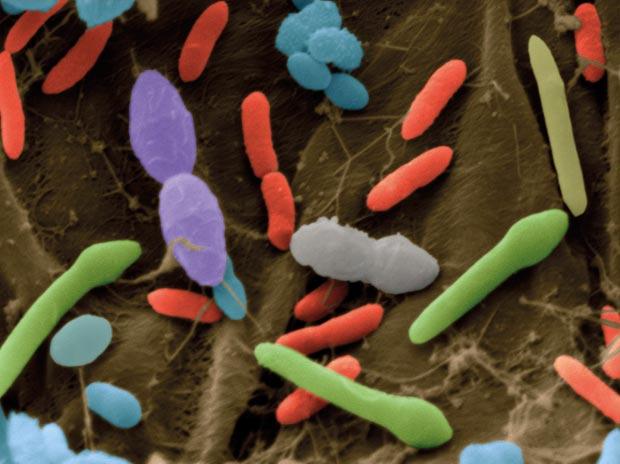Is the fountain of youth in the gut microbiome?” This provocative question popped up a few months back, not in a dodgy online ad promoting probiotics, but as the headline of a March 2019 perspective article in the Journal of Physiology. Its inspiration: a new study that found when aged mice were given a broad-spectrum antibiotic to suppress their microbiomes, their arterial function bounced back to that of much younger animals. These results along with similar findings from other groups, the authors of the perspective article wrote, indicate that the gut microbiome is a promising therapeutic target for reducing the risk of age-related cardiovascular disease in humans.
In light of what’s now known about the effects of gut bacterial metabolites on the cardiovascular system, the results weren’t surprising, says Vienna Brunt, a physiology researcher at the University of Colorado Boulder and the first author on the mouse study. In human and animal studies, researchers have in recent years uncovered ways in which certain microbial species can modulate disease risk, often via interactions with their hosts’ diets. And, while Brunt cautions that antibiotics were an experimental tool in her study and should not be viewed as a potential way to boost cardiovascular health in humans, some teams are investigating other ways to exploit the crosstalk between the gut and the cardiovascular system to develop new therapeutics.
Stanley Hazen, a physician-researcher at the Cleveland Clinic, likens the emerging awareness of the microbiome’s influence on health to a similar realization “a century ago when we were just learning what hormones were. . . . Now we [know of] hundreds of compounds that are being made by gut microbes that then get absorbed and, we see, have biological effects in the host.”
Good metabolites, bad metabolites
Hazen is a pioneer in mapping microbial contributions to cardiovascular disease risk. In 2011, he and his colleagues reported that levels of metabolites of the dietary lipid phosphatidylcholine were elevated in the plasma of people who went on to experience a heart attack, stroke, or death in the following three years compared with those who did not. The researchers also found that those metabolites led to artery hardening, or atherosclerosis, in mice, and that the deleterious effects of adding one metabolite, choline, to the diet could be suppressed in the animals if they were first given broad-spectrum antibiotics.
In subsequent studies, Hazen and his team have fleshed out the details of that relationship, finding that choline, an essential nutrient present at high levels in animal products, is converted by gut microbes into trimethylamine N-oxide (TMAO) and other trimethylamines (TMA). Those metabolites signal the blood’s platelets to become more reactive and prone to clotting, Hazen says. If blood clots do form—a condition known as thrombosis—they can cause a heart attack or stroke. Hazen and colleagues also found that carnitine, a compound found in high levels in red meat, can, like choline, be converted to TMA by gut microbes….







